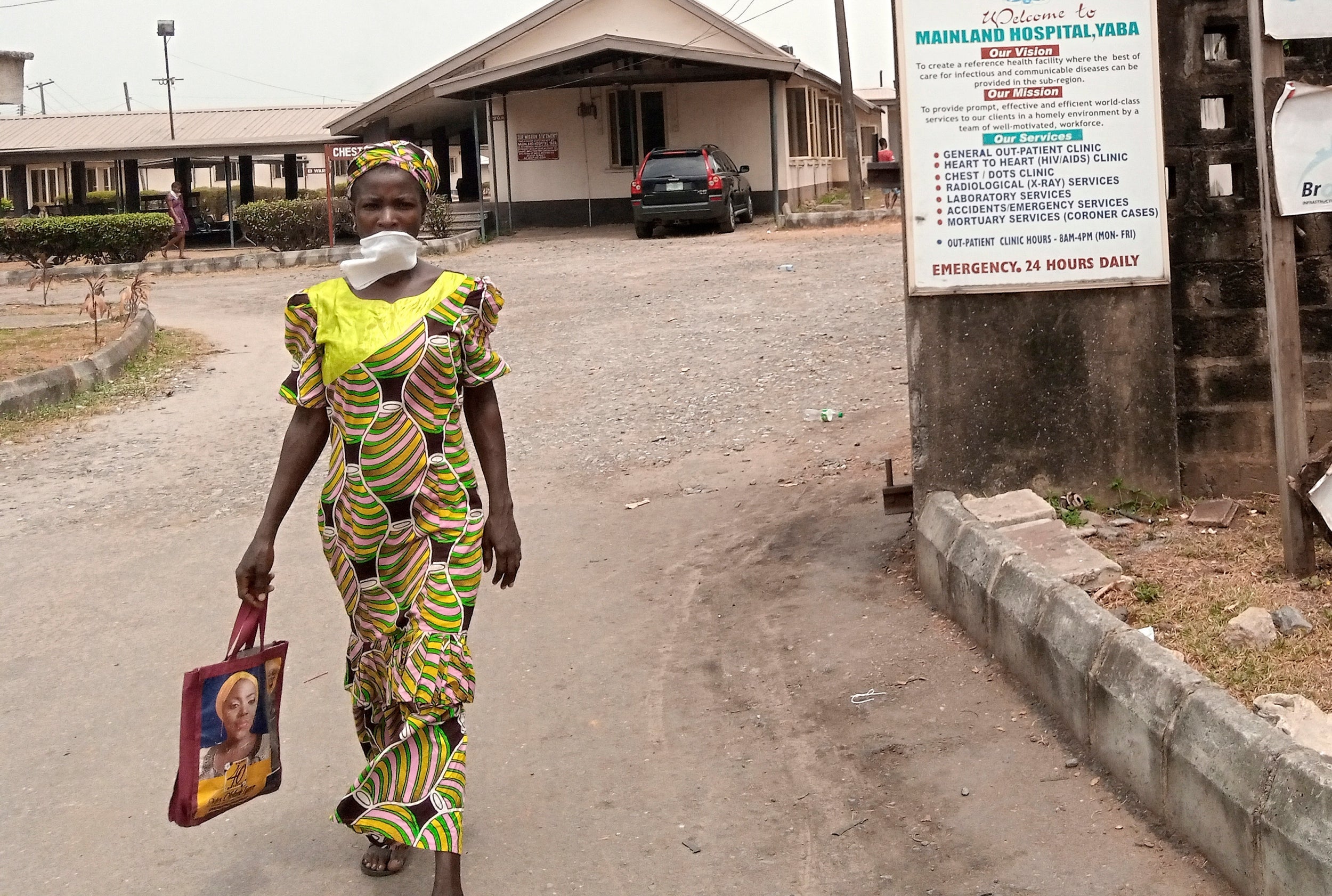I visited Nigeria's camps as an aid worker and saw the devastating potential of a coronavirus outbreak
The possibility of the virus entering overcrowded camps, where residents have no means to observe social distancing rules and little access to healthcare, weighs heavily on everybody’s mind


All I can think about is how desperately I want to touch my face. My breath condenses on my mask then trickles down my chin. It is noon and the temperature has risen above 40C. There is almost no movement in this camp for people uprooted by conflict in northeast Nigeria. Not at this hour. People sit in small groups in patches of shade: men under a tree, women under a tarpaulin roof.
I approach a group of women with a Nigerian Red Cross volunteer who helps with translation. Trying to make eye contact to compensate for the smile hidden behind my mask, I scope out where it is safe to sit. I feel awkward, imagining what I must look like to these women: a foreigner in a mask, keeping her distance. The obligatory two metres increase the divide already created by language, culture, war and trauma, privilege and opportunity.
Proximity is necessary for humanitarian work. It may sound like an abstract concept, but the idea behind it is as simple, as it is fundamental: if you want to help someone, a friend, a neighbour, a stranger in the street, a person on another continent whose life was shattered by a war, you must be close enough to gain their trust and understand what they need.
Amina agrees to talk to me. I ask if she is worried about the new virus. She says she worries that there is not enough food for her family now that the roads are closed and the prices have almost doubled. Fearing something that is not an immediate threat to your life in this camp is a luxury people cannot afford.
Working for a humanitarian organisation, my instinct has always been to try to get close to people affected by violence. In Gaza hospitals, when they were overwhelmed by the influx of wounded; in South Sudan, when 25,000 people who fled their homes were sleeping under trees; in the Central African Republic, when women abused by war-intoxicated men came to the Red Cross office to seek help.
Entering people’s personal space and breaking barriers has never been easy. But during a pandemic, when approaching someone may be putting lives at risk, it has become dangerous.
What would happen if the virus entered overcrowded camps, where residents have no means to observe social distancing rules and little access to healthcare, weighs heavily on everybody’s mind. The slightest possibility of becoming the vector of transmission is terrifying.
But when the virus came to this corner of Nigeria, the decade-long war refused to go away. It has intensified compared to the previous two years. People still flee their homes and urgently need medical treatment, water, food and a roof above their heads.
“The conflict in the north-east of Nigeria displaced almost two million people.” I don’t know how many times I said that phrase to journalists in my role as a spokeswoman for the International Committee of the Red Cross, but I only grasped the meaning of it when an old fisherman in one of the camps told me how much he missed Lake Chad.
The pandemic has affected humanitarian work in many ways. With borders shut and flights suspended, logistics and rotating staff is extremely difficult. Large distributions of assistance take twice as much time with all the Covid-19 preventive measures in place. As the world’s major economies fall into recession, funding is uncertain. But the biggest test of all is remaining close to people in camps, in prisons, in conflict areas, without putting them and yourself at risk.
On the way back from Damboa, I realise how exhausted I feel. Much less from the day of suffocating under the face mask crushed by the heat, than from the weeks of uncertainty that preceded it. I have spent 10 years working in places in the grip of conflict and violence, but this feels different. The noise of gunshots makes your heart beat faster and your adrenaline run high; the silent presence of this virus paralyses you. Still we must keep going. And we must find a way to remain close while keeping our distance.
Alyona Synenko is an aid worker for the International Committee of the Red Cross (ICRC).
Join our commenting forum
Join thought-provoking conversations, follow other Independent readers and see their replies
Comments
Bookmark popover
Removed from bookmarks